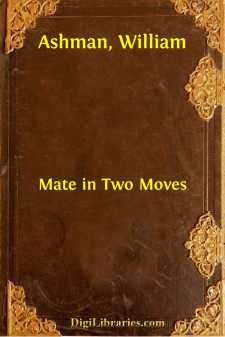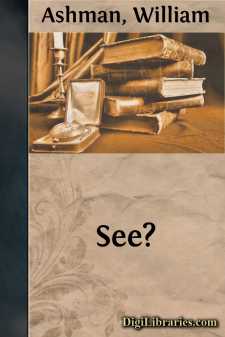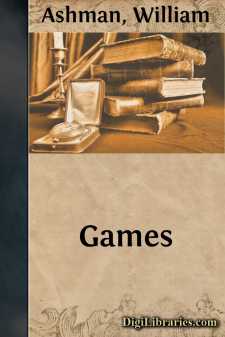Categories
- Antiques & Collectibles 13
- Architecture 36
- Art 48
- Bibles 22
- Biography & Autobiography 813
- Body, Mind & Spirit 142
- Business & Economics 28
- Children's Books 17
- Children's Fiction 14
- Computers 4
- Cooking 94
- Crafts & Hobbies 4
- Drama 346
- Education 46
- Family & Relationships 57
- Fiction 11829
- Games 19
- Gardening 17
- Health & Fitness 34
- History 1377
- House & Home 1
- Humor 147
- Juvenile Fiction 1873
- Juvenile Nonfiction 202
- Language Arts & Disciplines 88
- Law 16
- Literary Collections 686
- Literary Criticism 179
- Mathematics 13
- Medical 41
- Music 40
- Nature 179
- Non-Classifiable 1768
- Performing Arts 7
- Periodicals 1453
- Philosophy 64
- Photography 2
- Poetry 896
- Political Science 203
- Psychology 42
- Reference 154
- Religion 513
- Science 126
- Self-Help 84
- Social Science 81
- Sports & Recreation 34
- Study Aids 3
- Technology & Engineering 59
- Transportation 23
- Travel 463
- True Crime 29
Mate in Two Moves
by: William Ashman
Description:
Excerpt
Love came somewhat late to Dr. Sylvester Murt. In fact, it took the epidemic of 1961 to break down his resistance. A great many people fell in love that year—just about every other person you talked to—so no one thought much about Dr. Murt's particular distress, except a fellow victim who was directly involved in this case.
High Dawn Hospital, where 38-year-old Dr. Murt was resident pathologist, was not the first medical institution to take note of the "plague." The symptoms first came to the attention of the general practitioners, then to the little clinics where the G. P.s sent their patients. But long before anything medical was done about it, the plague was sweeping North and South America and infiltrating every continent and island in the world.
Murt's assistant, Dr. Phyllis Sutton, spotted the first irregularity in the Times one morning and mentioned it to him. They were having coffee in Murt's private office-lab, after completing reports on two rush biopsies.
She looked up from the editorial page and remarked, "You know, someone should do a research on the pathology of pantie raids."
Murt spooned sugar into his mug of coffee and stared at her. In their six months' association, it was the first facetious remark she had made in his presence. To this moment, he had held an increasing regard for her quiet efficiency, sobriety, professional dignity and decorum. True, she wore her white coat more tightly belted than was necessary and, likewise, she refused to wear the very low hospital heels that thickened feminine ankles. But she wore a minimum of come-hither in both her cosmetic and personality makeup. This startling remark, then, was most unexpected.
"Pantie raids?" he inquired. "Whatever would justify an inquiry into such a patently behavioristic problem?"
"The epidemic nature and its increasing virulence," she replied soberly. "This spring, the thing has gotten out of hand, according to this editorial. A harmless tradition at a few of the more uninhibited campuses has turned into a national collegiate phenomenon. And now secondary effects are turning up. Instructors say that intramural romance is turning the halls of ivy into amatory rendezvous."
Murt sipped his coffee and said, "Be thankful you aren't a psychiatrist. Bacterial mutations are enough of a problem, without pondering unpredictable emotional disturbances."
His assistant pursued it further. "It says the classrooms are emptying into the marriage bureaus, and graduation exercises this year will be a mockery if something isn't done. What's more, statistics show a startling increase in marriages at the high school level."
Murt shrugged broad shoulders that were slightly bent from long hours over a microscope. "Then be thankful you aren't an overworked obstetrician," he offered as an amendment.
She glanced up from the paper, with annoyance showing in her dark, well-spaced eyes. "Is it of no interest to you that several hundred thousand youngsters are leaving high school and college prematurely because they can't control their glands?"
"Be glad, then," Murt said coldly, "that you aren't an endocrinologist—now drink your coffee. I hear the microtome working. We'll have some business in a minute."
Dr. Phyllis Sutton rustled the pages of the Times together, folded it up and threw it at the wastebasket with more vigor than was necessary....












